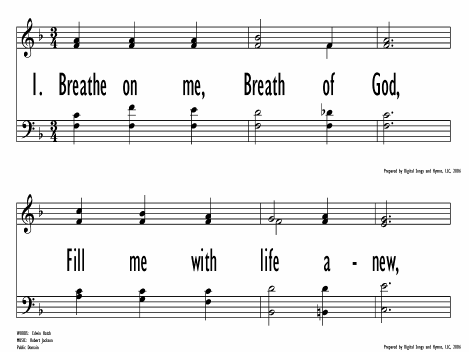- |
User Links
AYLESBURY (Chetham)

AYLESBURY (Chetham)
Composer: John ChethamPublished in 61 hymnals
Printable scores: PDF, MusicXML
Audio files: MIDI, Recording
Composer: John Chetham
Baptized: February 4, 1665, Ashton-under-Lyne, Lancashire, England. Buried: 1746, Skipton, Yorkshire, England. After attending Deckerfield School, then taking orders, Chetham became Curate of Skipton, North Yorkshire. His collection A Book of Psalmody was first published in 1718, and had at least eleven editions, through 1787. Music: BARRAGH MARLOW WIRKSWORTH --www.hymntime.com/tch/ Go to person page >Tune Information
| Title: | AYLESBURY (Chetham) |
| Composer: | John Chetham |
| Meter: | 6.6.8.6 |
| Incipit: | 15432 15765 45321 |
| Key: | a minor |
| Source: | J. Chetham's A Book of Psalmody, 1718;"A Book of Psalm Tunes," by James Green, 5th edition, 1724 |
| Copyright: | Public Domain |
Notes
Also called: WIRKSWORTH
WIRKSWORTH was first published in John Chetham's collection A Book of Psalmody (1718) and gained its present shape in James Green's Book of Psalm Tunes (1724). Set in minor tonality, WIRKSWORTH has a folk-like charm. The tune's name derives from the town Wirksworth in Derbyshire, England. Antiphonal performance is desirable for singing the entire group of seven stanzas; each stanza could also be divided so that each group sings one of the Beatitudes. Another option is to alternate unison and harmony singing throughout. Everyone should sing the final stanza.
Samuel S. Wesley (b. London, England, 1810; d. Gloucester, England, 1876) harmonized the tune and published it in his European Psalmist (1872). A grandson of Charles Wesley (PHH 267), Samuel Sebastian was a chorister at the Chapel Royal and sang in St. Paul's Cathedral. He learned composition and organ from his father, Samuel (PHH 1), completed a doctorate in music at Oxford, and composed for piano, organ, and choir. He was organist at Exeter Cathedral (1835-1842), Leeds Parish Church (1842¬1849), Winchester Cathedral (1849-1865), and Gloucester Cathedral (1865-1876). Wesley strove to improve the standards of church music and the status of church musicians; his observations and plans for reform were published as A Few Words on Cathedral Music and the Music System of the Church (1849). He was the musical editor of Charles Kemble's A Selection of Psalms and Hymns (1864) and of the Wellburn Appendix of Original Hymns and Tunes (1875) but is best known as the compiler of The European Psalmist (1872), in which some 130 of the 733 hymn tunes were written by him.
--Psalter Hymnal Handbook
Timeline
Arrangements
Organ Solo
|
Media
Psalter Hymnal (Gray) #206
Text: Blest Are the Contrite HeartsWith Heart and Voice: songs for all God's children #34
Text: Blest Are the Contrite Hearts- MIDI file from The Cyber Hymnal #12643
- MIDI file from The Cyber Hymnal #13703
- MIDI file from The Cyber Hymnal #15826
- MIDI file from The Cyber Hymnal #16112
- MIDI file from The Cyber Hymnal #16122
- Audio recording from The New English Hymnal #342b
- MIDI file from Psalter Hymnal (Gray) #206
- MIDI file from Psalter Hymnal (Gray) #206
- Audio recording from Small Church Music #6582
- MIDI file from The Southern Harmony, and Musical Companion (New ed. thoroughly rev. and much enl.) #281
- MIDI file from Urania: or a choice collection of psalm-tunes, anthems, and hymns, from the most approv'd authors, with some entirely new; in two, three, and four parts... #25
- MIDI file from With Heart and Voice: songs for all God's children #34
- MIDI file from With Heart and Voice: songs for all God's children #34


 My Starred Hymns
My Starred Hymns




